In no circumstance whatever can man be comfortable without art
John Ruskin
Welcome to another round-up of poems from books I’m reading, during which I think of myself as a kind of late-night poetry DJ, playing new tracks. As before, there’s one for every day of the week ahead. You can catch up on previous episodes here:
I included the first poem of Maurice Riordan’s sequence “The Idylls” in The Penguin Book of the Prose Poem because I liked its dry attention to the idioms of Southern Irish English (Riordan grew up on a farm in County Cork) and the poetry of conversational recollection. As Jack Underwood notes in his editor’s introduction to a new Selected Poems (Faber), “Riordan is a poet who […] enjoys a proper noun”. Here’s the fourth Idyll:
Don Mee Choi’s second collection Hardly War was published in the States in 2016, but it’s now been made available in the UK by the excellent And Other Stories (who also publish her translations of Kim Hyesoon). It’s a work in the documentary-collage tradition that has become increasingly important in American poetry: among other texts, the title poem draws on the words of Choi’s father, who worked as a professional photographer during the Korean and Vietnam wars. “A paper closet with real paper dresses in it” is, I think, her rewriting of Marianne Moore’s “imaginary gardens with real toads in them” as a metaphor for collage poetry’s layered textuality:
A new work of found poetry that I’ve been admiring is John Bevis’ A Surrey Naturalist, just published by the ever-interesting Uniformbooks. An author’s note explains how it works through the chapters of a single non-fiction book, Eric Parker’s A Surrey Naturalist (1952), extracting and compressing words and phrases into short poems. The following lines were made using the “cutout” technique, where words are framed on the page by a piece of cardboard with a matchbox-sized hole in the middle. Bevis quotes the American poet Jonathan Williams, who used cutouts to find “the fire-points, the garnet crystals free of their matrix”. I’m also reminded of the student in a workshop I ran recently about the related practice of erasure poetry, who said his uncle used to throw a slice of Swiss cheese on a book and declare the holes a poem.
I wrote last year about Sam Riviere’s Conflicted Copy (Faber), a book of poems made using an early version of ChatGPT:
The way Conflicted Copy arranged hallucinated text into verse left me with a sense of how Riviere’s writing often sounds as though it is listening to language as it passes through the mind onto the page. Mirrors for Princes (After Hours Editions) collects much uncollected work from the last decade and a half. There are longer, stranger poems here, but this quatrain catches that ironic listening quality, as the sound of “all morning” echoes (and slightly weakens) into “slight moral weakening”:
I’m reading Imogen Cassells’ debut Silk Work (Prototype) for review at the moment, and enjoying how her intelligently sound-led lines dip into dream-like pastoral landscapes. Here is a whole poem about such a place, which taught me the precise word serac: “a tower of ice on a glacier, formed by the intersection of crevasses”.
It’s very good news that Vidyan Ravinthiran has a new collection out, Avidyā (Bloodaxe). I thought his previous book, The Million-petalled Flower of Being Here (2019), was terrific. And I remember reading the last poem of Avidyā when it first appeared in Poetry magazine back in 2017. Now, its haunting final phrase, “the avid void of English”, resonates with Ravinthiran’s recently published work of critical autobiography, Asian/Other: Life, Poems, and the Problem of Memoir (Norton). In it, he describes how his childhood speech impediment, and the pressure in an immigrant Sri Lankan Tamil family to master received pronunciation, led to a love of dictionaries as a compensatory realm of rich English: “its capaciousness and acceptance of the foreign; an arena in which I could be confident of my originality, if nothing else”.
You can read an early version of the essay here: https://poetrylondon.co.uk/a-flint-holds-fire-vidyan-ravinthiran-on-growing-up-with-a-speech-impediment/
Finally, I’m honoured to have been visited by a “Book on Tour (without an author)”: Alice Willitts’ Kiss My Earth (Blue Diode Press). It came in the post with a card tucked into a pocket at the front, like an old-school library borrowing record, to fill in before posting on to a new reader. I’m still in the middle of its playful and painful imagining of East Anglian fen landscapes, now and in their underwater future. Here’s a poem about their past:
And now I’m off to dig for lions on my allotment.




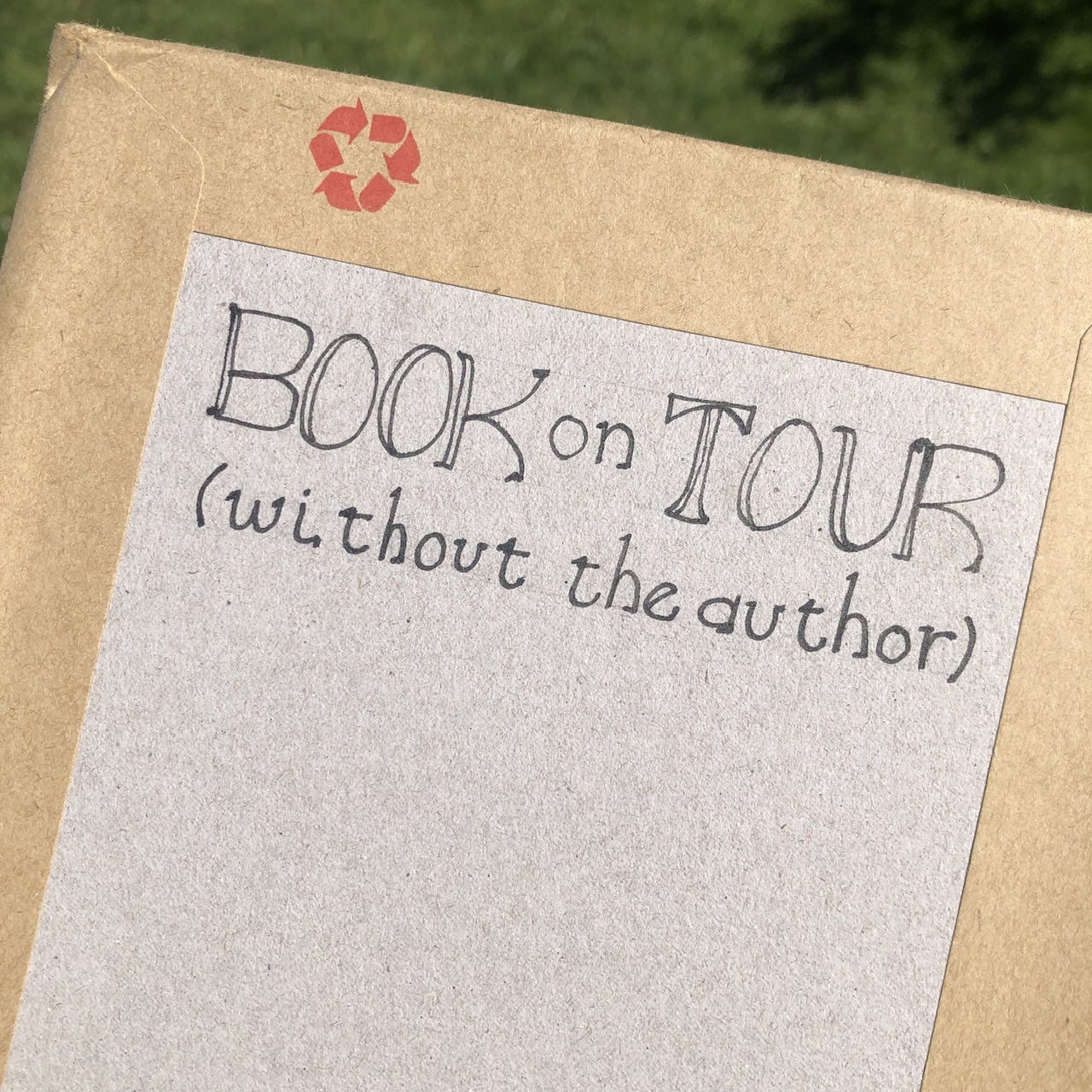


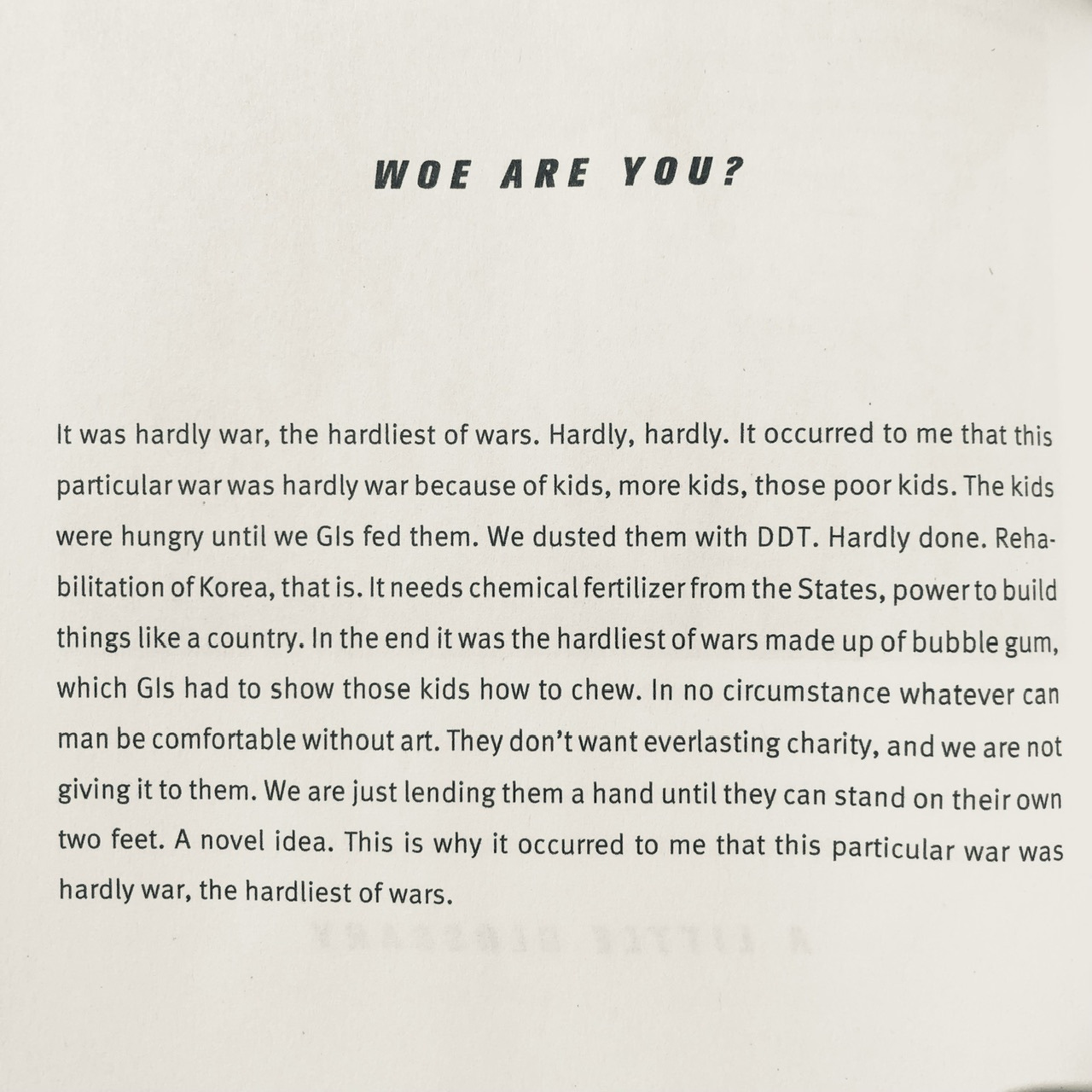



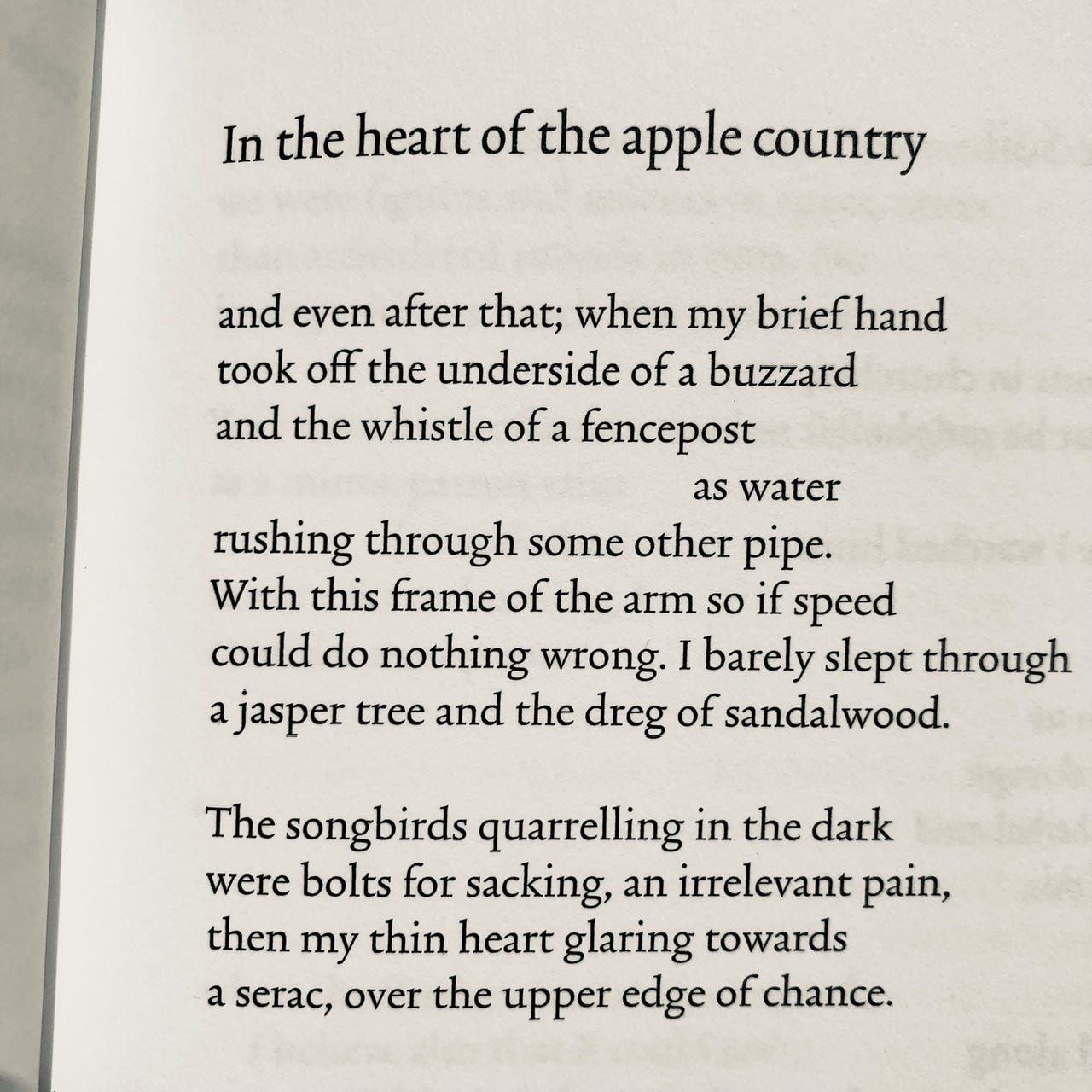
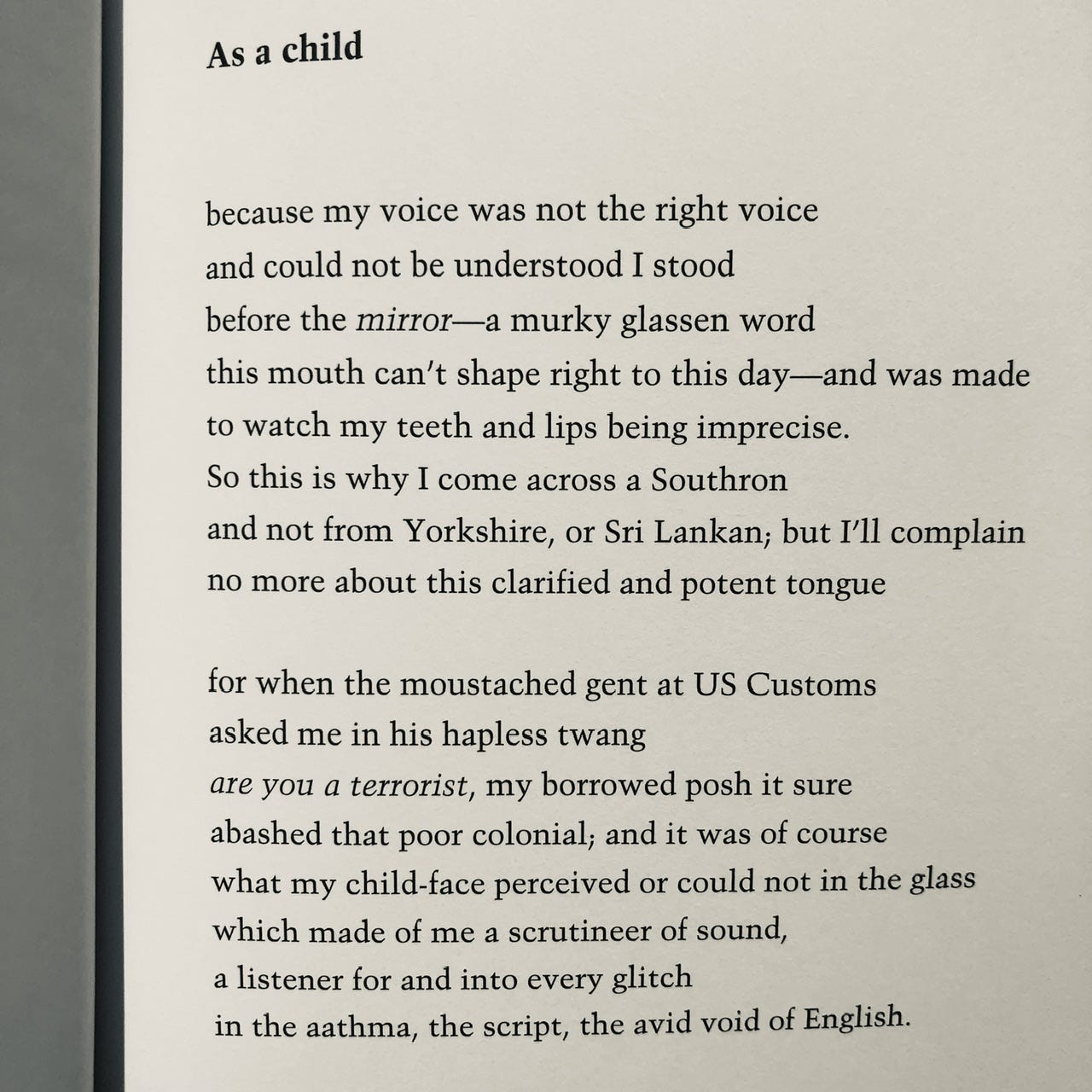
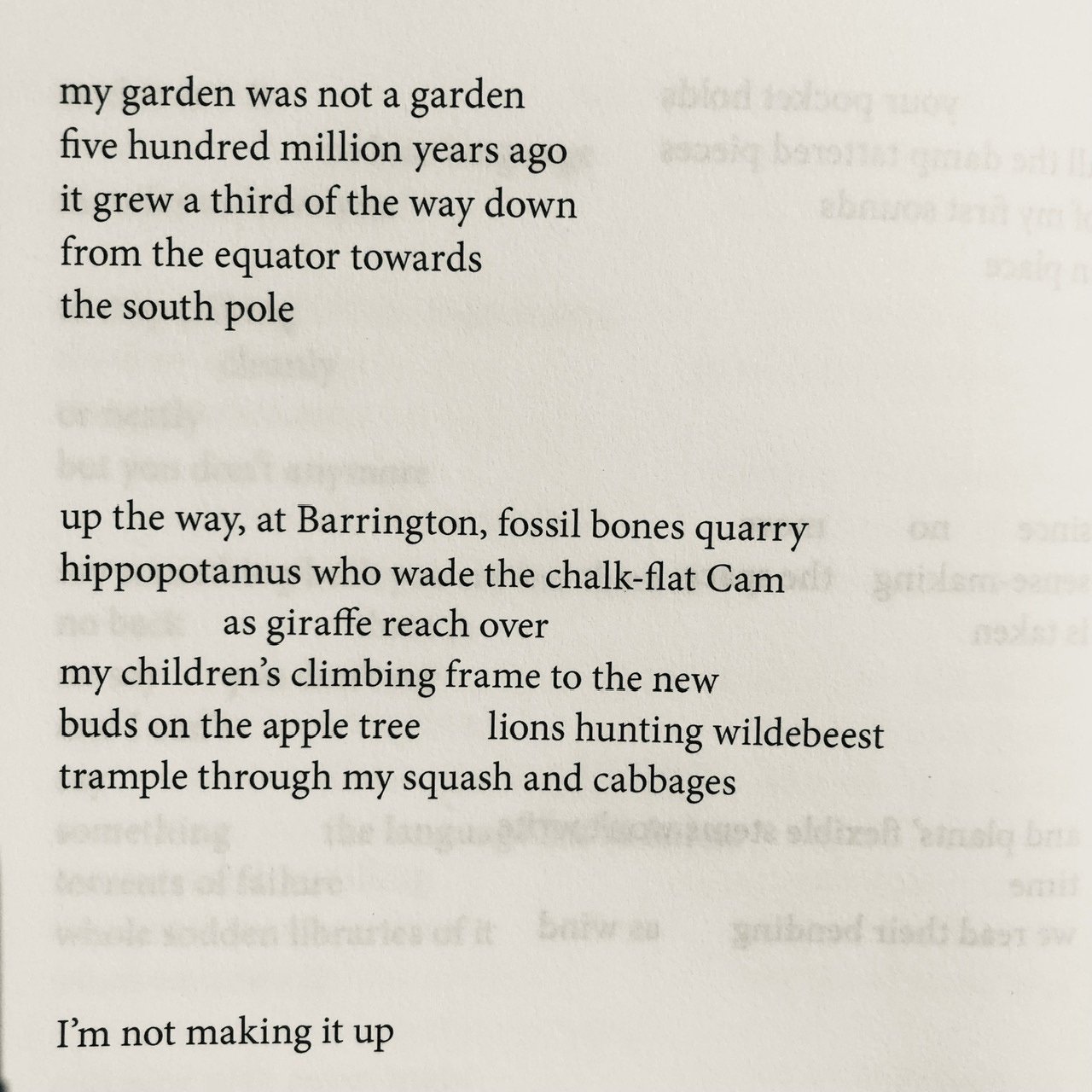

What a fascinating look over the shoulder view of so many good poems. Not sure how I got here but enjoyed the visit.